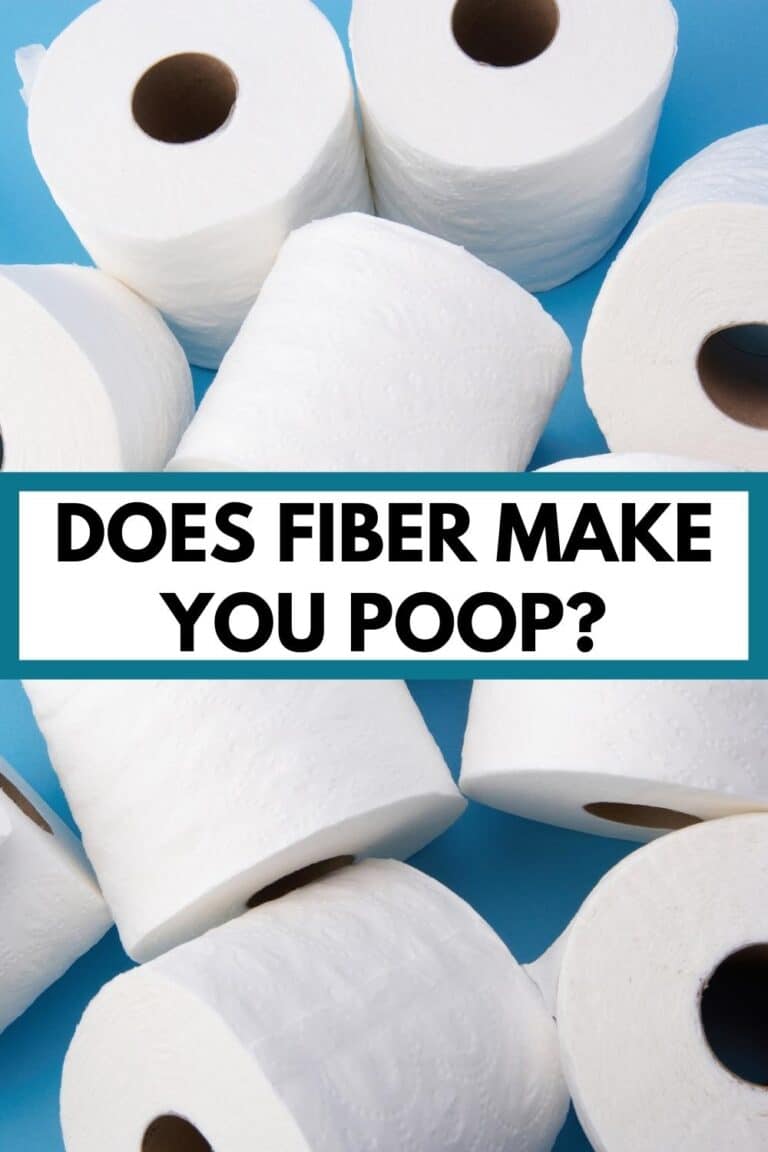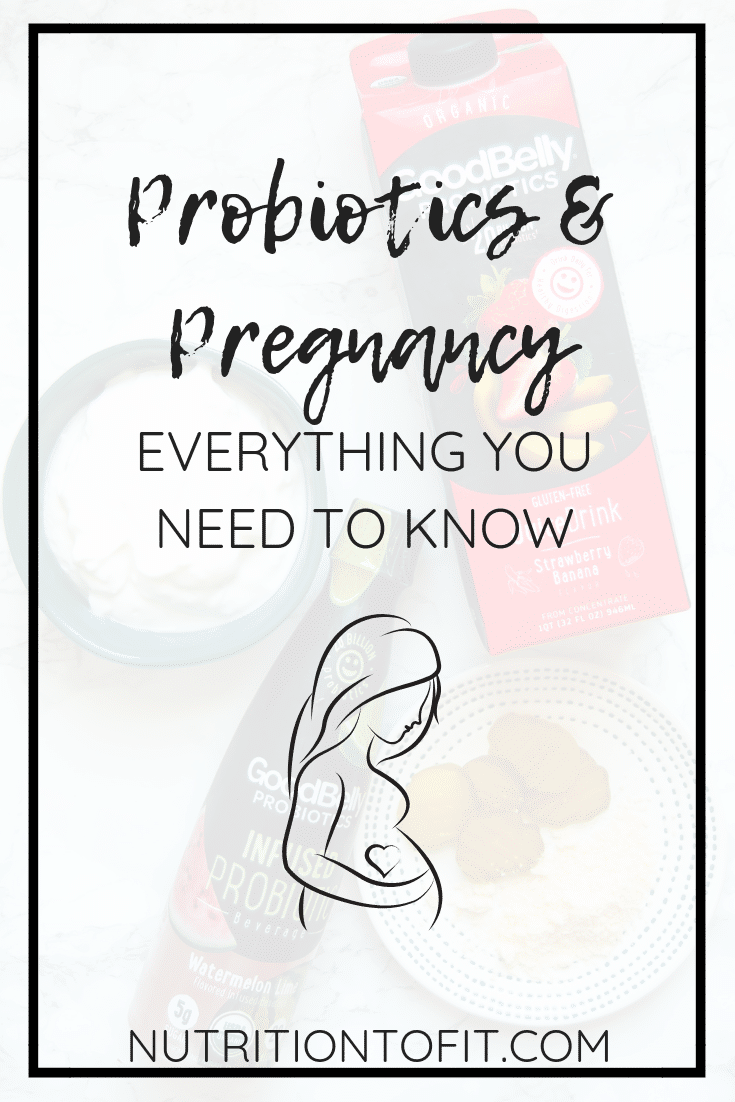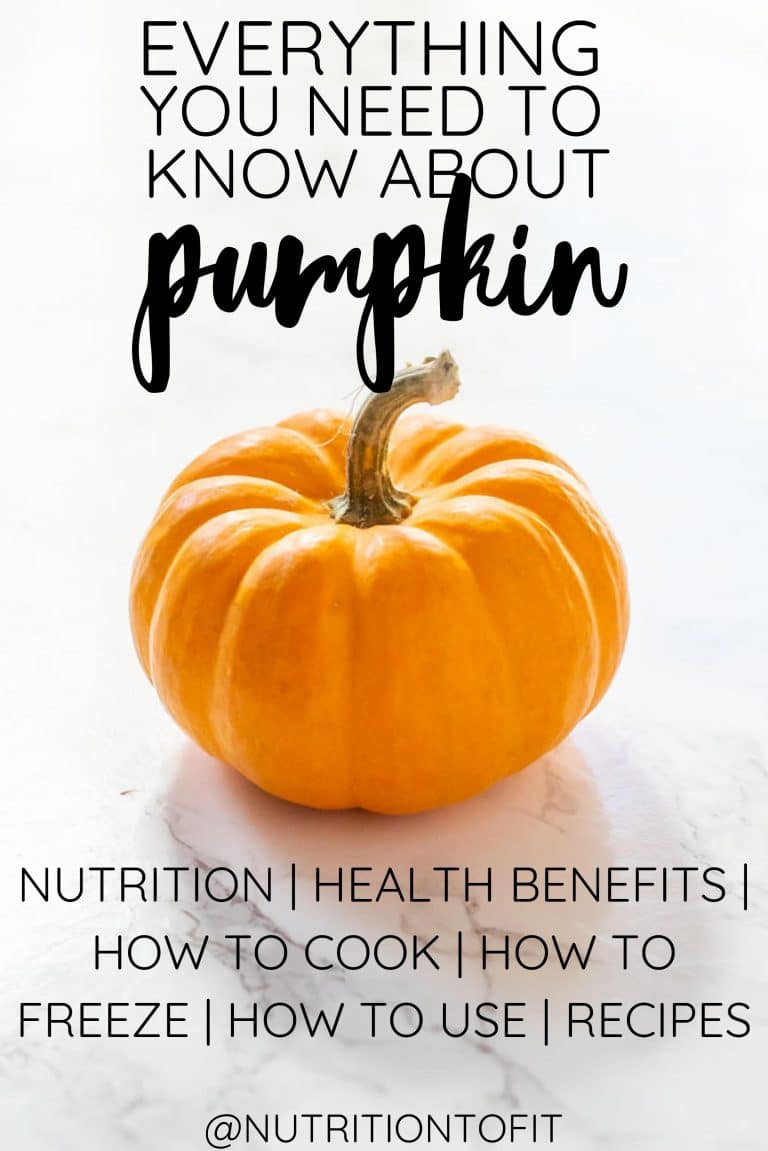Inflammatory Foods List (PDF)
Curious what foods cause inflammation? Grab your free Inflammatory Foods List PDF and explore this article. Learn more in depth about inflammation, inflammatory foods and why they’re inflammatory, and whether or not it’s a good idea to eat these inflammatory foods again. (You may be surprised what research suggests!)
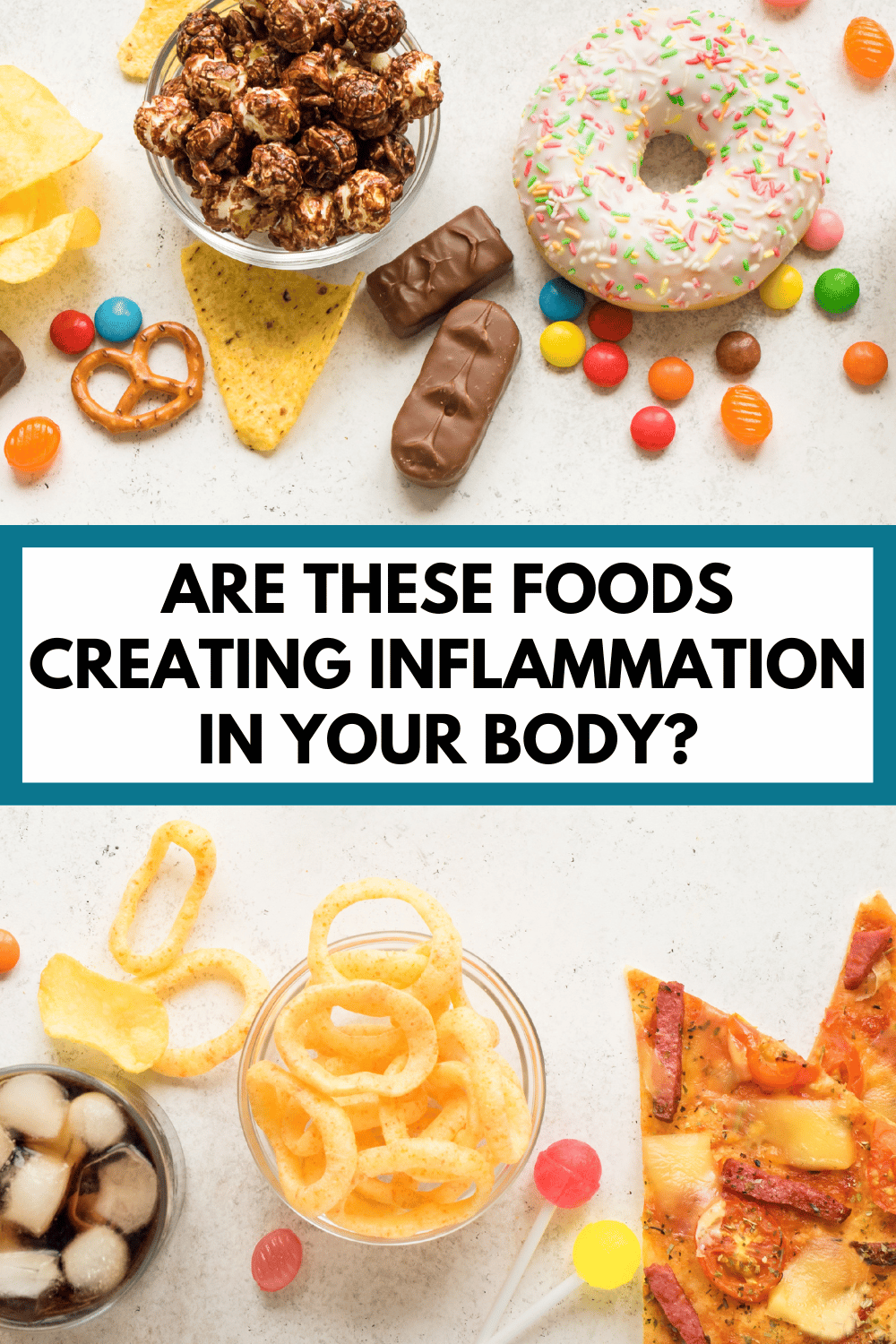
What is Inflammation?
Very generally, inflammation is the body’s immune system’s response to irritation, like a germ, a splinter, or psychological stress.
There are two categories of inflammation:
- Acute Inflammation: A short-term (typically less than two weeks) inflammatory response, where the body typically is restored to as it was pre-illness/ injury.
- Chronic Inflammation: Ongoing, typically less severe inflammation lasting longer than six weeks. It’s linked to autoimmune disorders, prolonged stress, and doesn’t always end when injury/ illness has healed.
Inflammation Isn’t All Bad
Everyone experiences inflammation, and it isn’t necessarily a bad thing.
Inflammation can actually help protect your body, like in cases of acute inflammation.
Have you ever had an injury, even a splinter, and notice the area around it gets red and swollen? This is inflammation at work – beneficially! It happens because helpful white blood cells head to the injured area to ward off infection and help with healing.
Do Foods Cause Inflammation?
Inflammation can be caused by many things – injury, illness, psychological stress, and yes, sometimes food.
But before we discuss specific inflammatory foods, I want to share something very important:
Your overall eating pattern is more significant than a single food.
(And research supports this.)
Just because certain foods may be more inflammatory doesn’t mean you can never consume them. With the exception of food allergies and certain medical conditions (i.e. celiac disease), most folks will be better off focusing on adding more nutrient-dense foods most of the time without stressing the occasional less nutrient-dense food, even if it’s inflammatory.
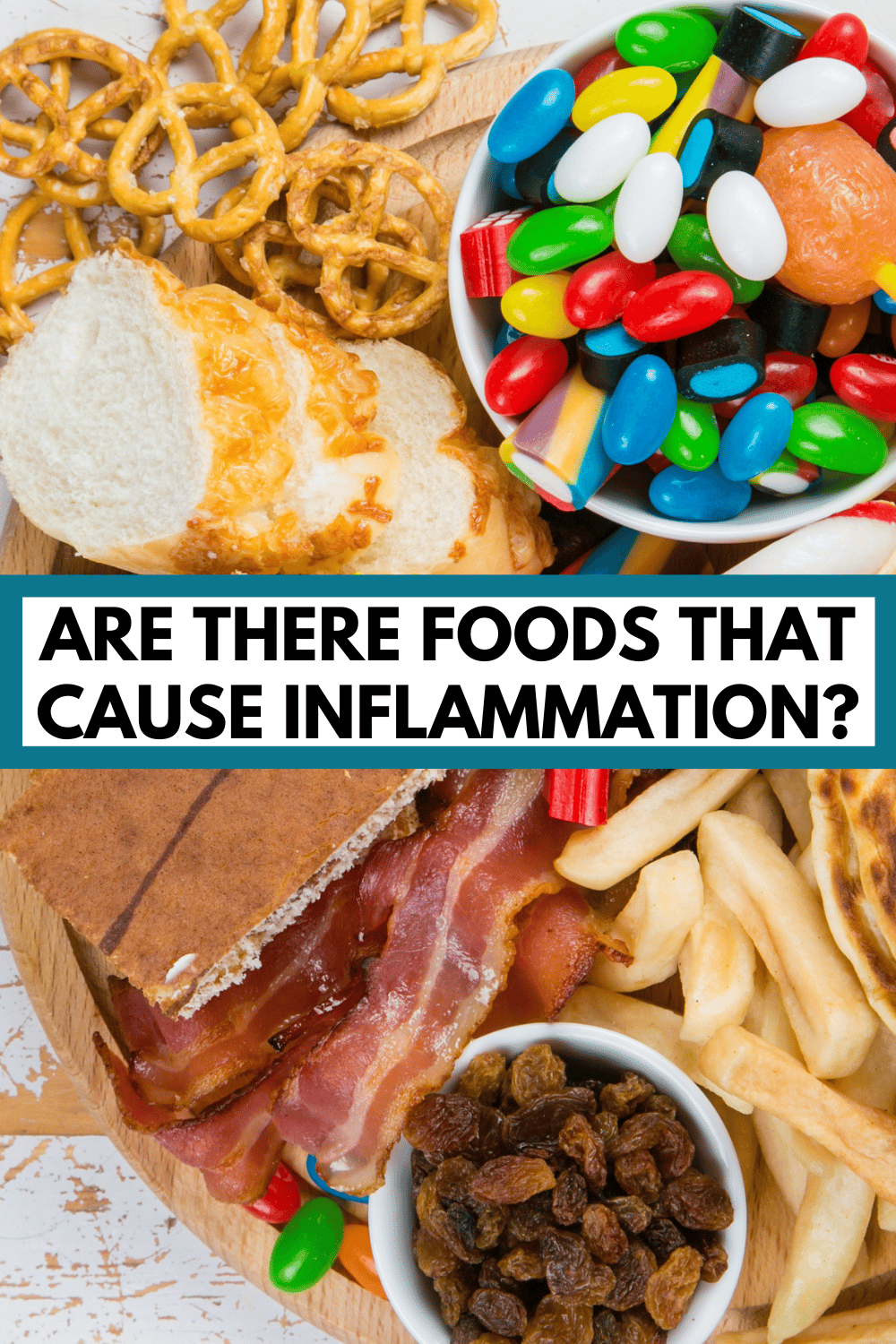
Inflammatory Foods List
Inflammatory foods include:
- Foods you medically need to avoid (like gluten with celiac disease or foods you’re allergic to)
- Processed Meats like hot dogs, bacon, ham, deli meat
- Refined Sugar like table sugar, high fructose corn syrup, and brown sugar.
- Trans Fat which can be found in fried foods and some shelf-stable fats in foods like cookies, shortening, and margarine
- Deep Fried Foods like french fries, fried chicken, chips
- Excess Omega-6 Fats
- Refined Carbohydrates like refined white bread and foods like cookies and muffins.
- Alcohol such as wine, beer, and spirits
Let’s talk about why.
Medically Problematic Foods
What I’m calling medically problematic foods are simply foods that may be medically problematic to specific individuals. Some examples include food allergies and celiac disease with gluten.
Food allergies involve an IgE immune response to the food proteins, and it’s typically a rather quick inflammatory response.
Even if it’s not a true food allergy, but more so an intolerance or food sensitivity, it can still create inflammation in your body.
Gluten with celiac disease is not an IgE reaction, and it’s typically a slower response, over a day or two. But celiac disease is a chronic inflammatory condition and it’s symptoms are directly triggered by gluten.
Processed Meats
Studies suggest higher processed meat intake is associated with higher levels of C-reactive protein (CRP), a blood marker that measures inflammation in the body.
Processed meats include deli meat, hot dogs, bacon, ham, and other cured meats.
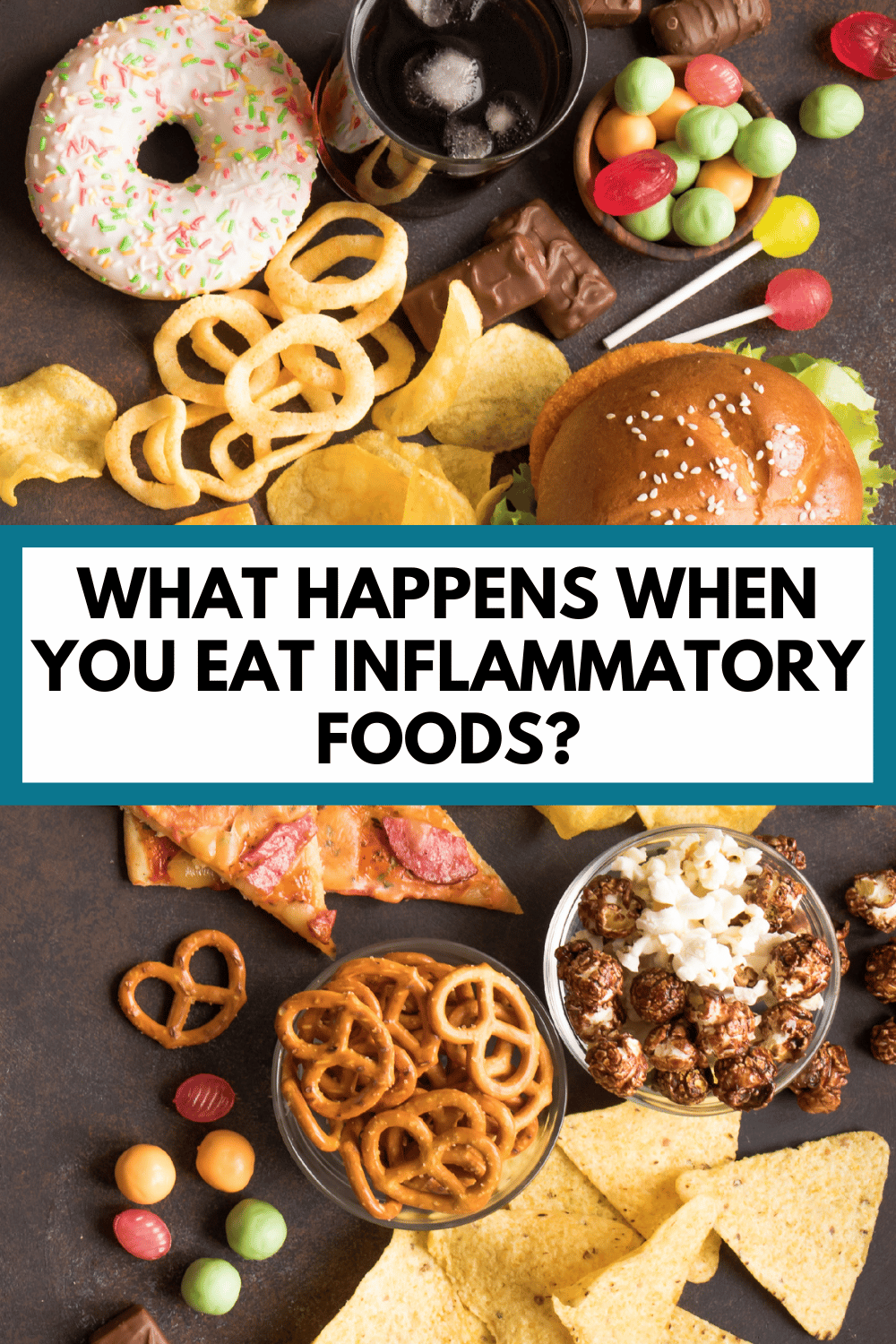
Refined Sugar
Sugar can play an inflammatory role in the body. Studies show higher sugar intake is correlated with low-grade levels of inflammation.
One randomized controlled trial look at healthy young men drinking 2.5 cups of a sugar sweetened beverage containing 40 or 80 grams of glucose or fructose. Within 3 weeks, CRP (measuring inflammation), LDL particles, and fasting glucose all increased, showing increased inflammation.
Another six month randomized controlled trial had overweight and obese individuals drink one can of regular soda daily for six months. This led to increased uric acid, which can induce insulin resistance and low-grade inflammation. It may even play a role in developing metabolic conditions. Interestingly, this increase in uric acid did not occur with diet soda.
Not that it seems to be refined sugar sources that are more inflammatory. In fact, honey may exhibit anti-inflammatory properties, as well as a phenolic extract in maple syrup.
Trans Fat
Trans fatty acids are unsaturated fats with at least one double bond in the trans configuration, formed during hydrogenation of vegetable oils to keep them more shelf stable for food manufacturing. Major sources include fast foods, bakery products, packaged snacks, and some margarines.
Studies show that consuming trans fats is correlated with increased markers of systemic inflammation. It’s also associated with increased risks of coronary artery disease, diabetes, high cholesterol, and more.
Deep Fried Foods
Fried foods can contain trans fats, which are inflammatory, and they may also contribute towards an excessive intake of omega-6 fatty acids and refined carbohydrates (which both can also be inflammatory, see below).
But deep fried foods can also produce compounds called advanced glycation end products, or AGEs. These AGEs can increase inflammation in the body and may lead to the development of other health concerns.
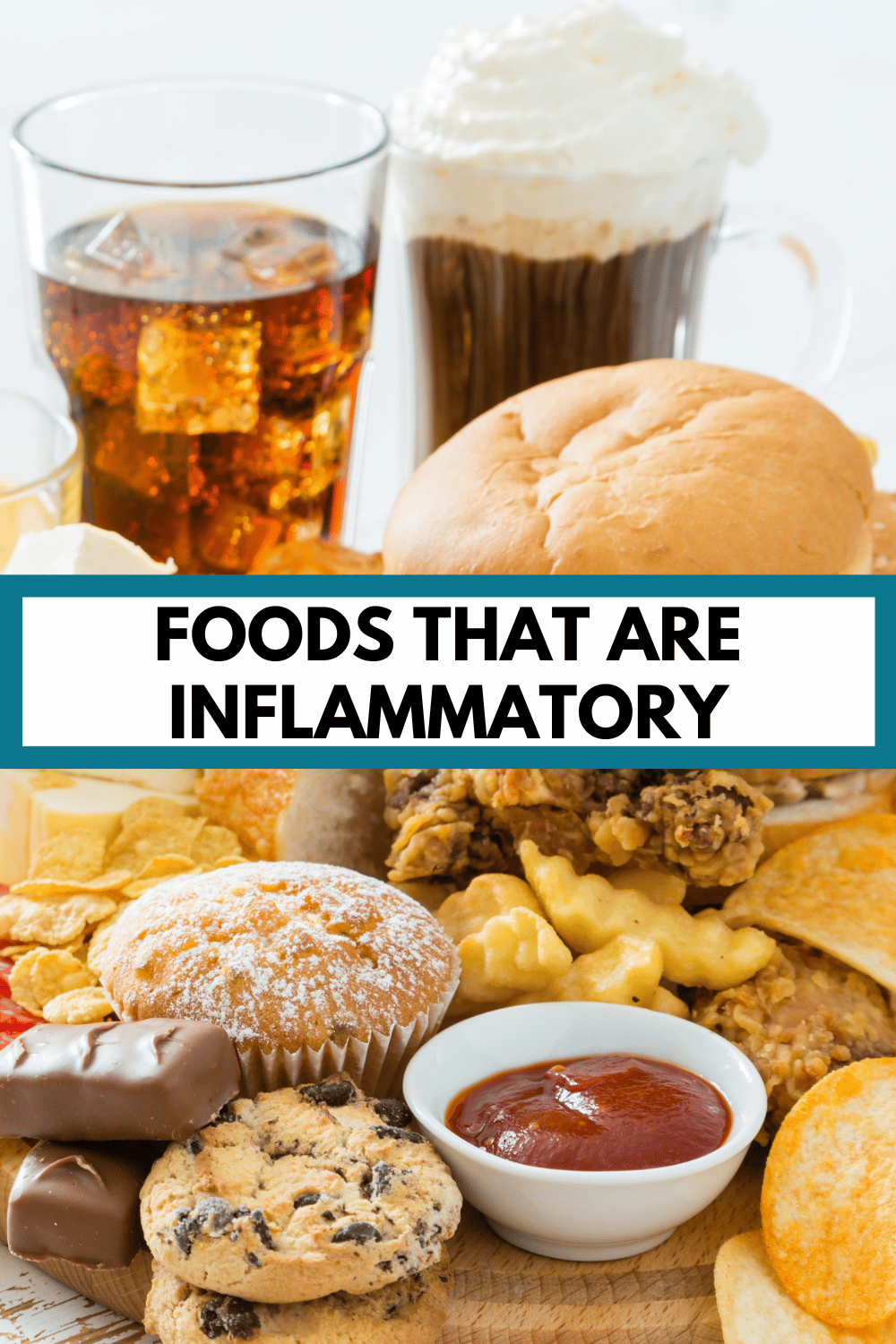
Excess Omega-6 Fats
Omega-6 fatty acids are getting a lot of hate at the moment — like if you’ve ever gone on any social media platform and have seen wellness influencers freaking out about seed oils, it’s likely because of the omega-6 content.
Here’s the deal – omega-6 fats actually are important for our health. Omega-6 fatty acids play a role in brain function, growth and development, heart health, skin and hair health and growth, bone health, metabolism, reproductive health, and more.
Omega-6s are most beneficial when consumed in a ratio to omega-3 fatty acids.
Unfortunately, omega-6 fatty acids are far more available, accessible, and widespread in our food supply, compared to omega-3 fatty acids. This makes it incredibly easy to consume omega-6 fats in excess.
Excessive omega-6 polyunsaturated fatty acid arachidonic acid (ARA) can be a precursor to some pro-inflammatory mediators in the body.
Refined Carbohydrates
Refined carbohydrates are those that are more processed. They typically are more of the “white” flours and products, with a higher glycemic index and less fiber.
Eating an excessive amount of refined carbs has been associated with higher levels of body inflammation in human studies.
Alcohol
Alcohol may lead to inflammation in the gut and liver. Like most of these inflammatory foods, it’s consuming in excess when things become problematic.
One study actually showed both non-drinkers and heavy drinkers had higher CRP values, reflecting greater systemic inflammation compared to moderate drinkers. Another study showed chronic alcohol usage negatively impacted gut and liver function and led to systemic inflammation and even major organ damage.
Inflammatory Foods List PDF
>>Click here to access your free Inflammatory Foods List PDF!<<
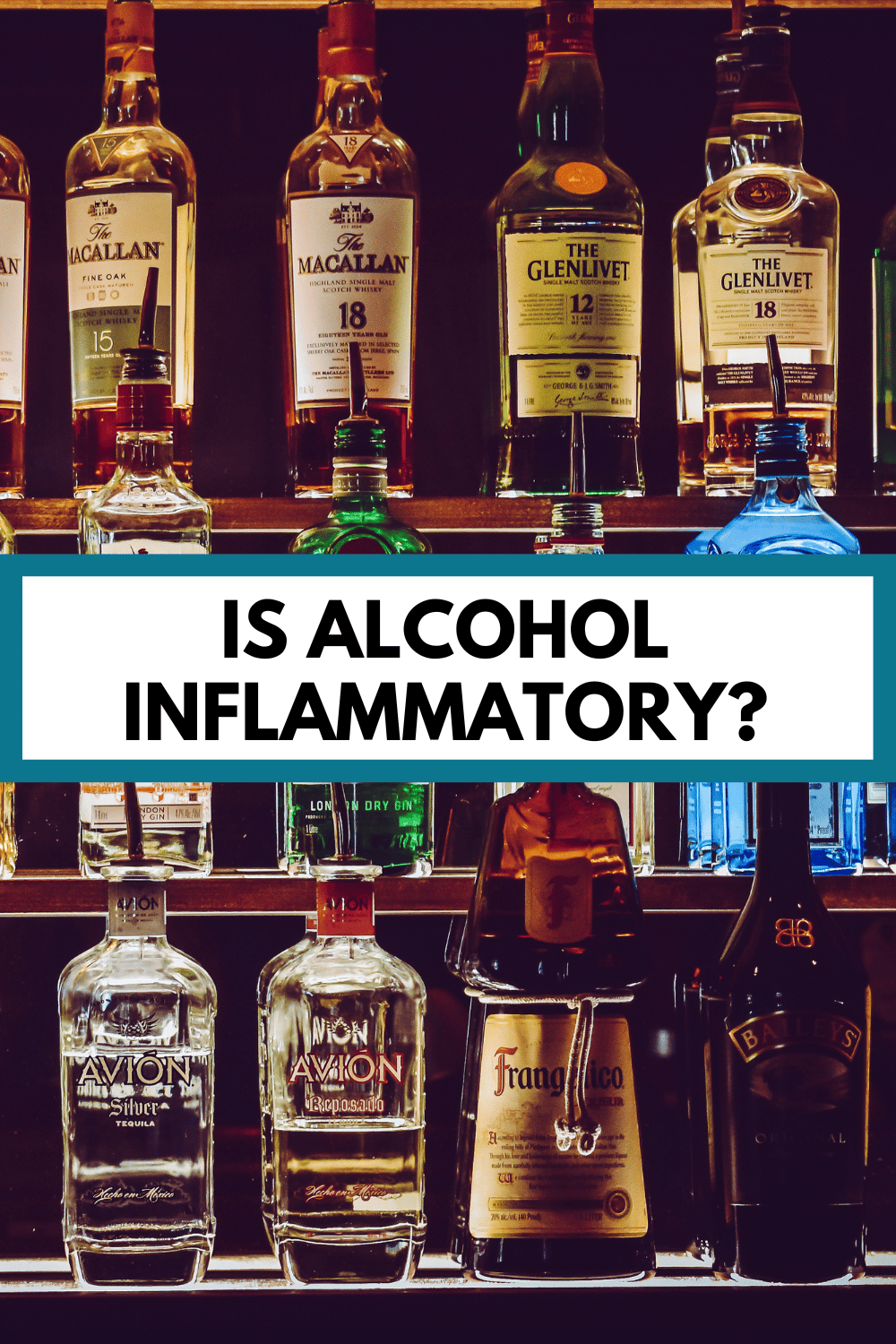
Foods That Fight Inflammation
When it comes to foods that fight inflammation, consider foods in these groups:
- Fruits
- Vegetables
- Whole Grains
- Legumes
- Nuts & Seeds
- Fatty Fish
- Healthy Fats
- Certain Herbs, Spices, & Drinks
For more on anti-inflammatory foods, check out my article: Anti-Inflammatory Foods List (PDF)!
Anti-Inflammatory Recipes to Enjoy
Need some delicious new recipes to enjoy anti-inflammatory foods? Try some of these:
- Mango Overnight Oats
- Mediterranean Cucumber Salad
- Agua Frescas
- Pineapple Cucumber Smoothie
- Pesto Crusted Salmon
- Chocolate Blackberries
What Happens if You Eat Inflammatory Foods?
I know it’s an annoying answer, but it depends. Some foods may create an immediate inflammatory response – especially in individual cases where there may be pre-existing medical concerns.
But in general for most folks, eating inflammatory foods on occasion in moderate amounts will not make or break your health. In fact, food is only one small role in determinants of health (others including your environment, education, genetics, medical conditions, culture, finances, and more).
But when it comes to inflammatory foods, typically it’s chronic, excessive consumption that’s a concern.
Can You Still Eat Inflammatory Foods?
Generally, yes, you can still eat any of the inflammatory foods listed here. (With exception to medical reasons – like as someone with a severe anaphylactic tree nut allergy, I’ll never be able to chow down on some walnuts…or even a walnut.)
Only you know what balance with food feels good to you.
As a dietitian, I encourage you to eat a variety of nourishing, nutrient-dense foods (often anti-inflammatory!) that help you feel good in your body.
But I also think there’s room to enjoy the chocolate chip cookies you bake with your kids or that funnel cake at the annual fair, or (one of my personal favorites) – some homemade artisan bread or french fries with a salad. In fact, I think it’s healthy to find that balance where you feel good AND enjoy your life – including special food moments. That’s part of the human experience!
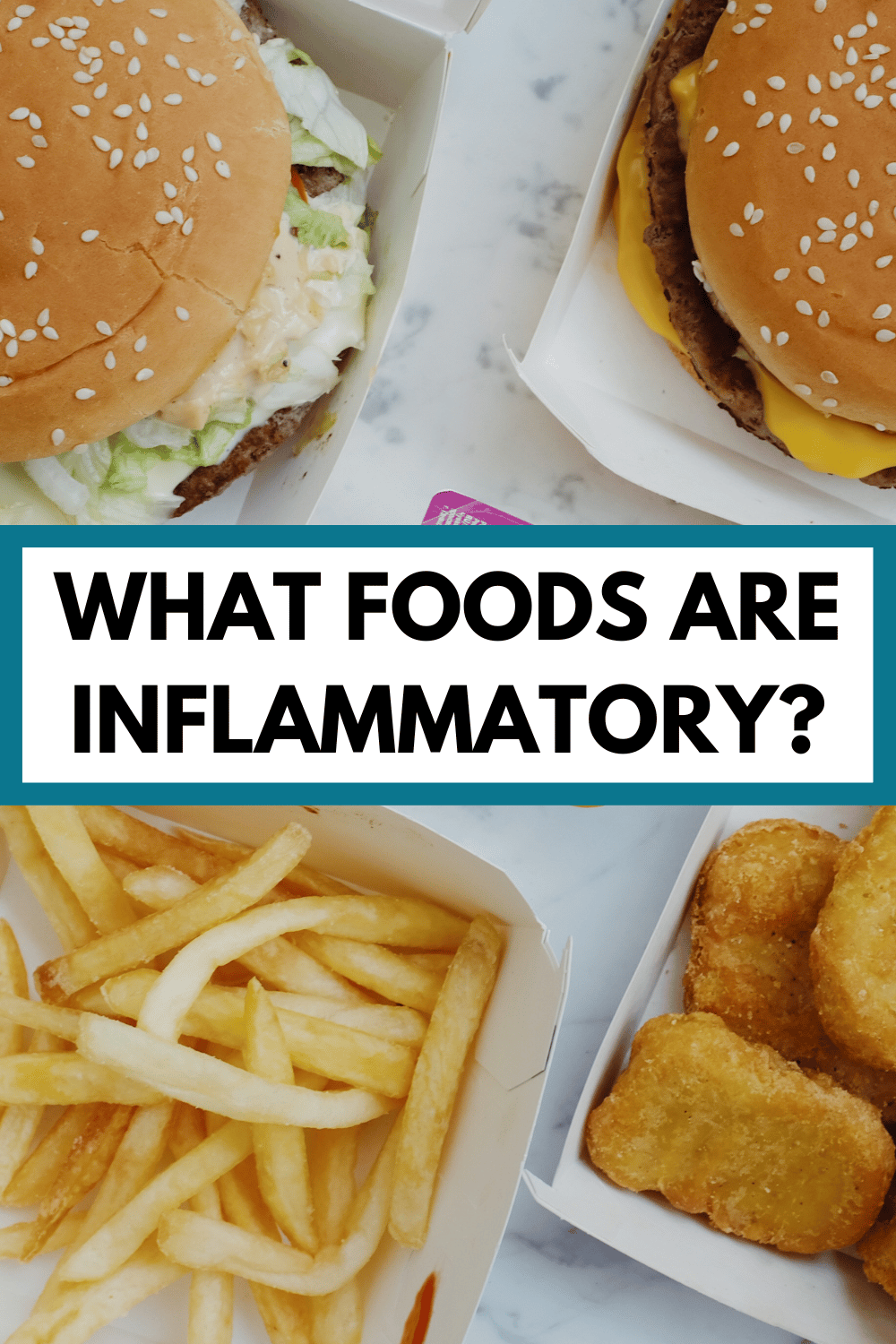
Inflammatory Foods – Final Thoughts
Are there some foods that create inflammation? Yes, and your inflammatory foods list includes foods you medically need to avoid (like severe food allergies), processed meats, refined sugar, trans fat, deep fried foods, excess omega-6 fats, refined carbohydrates, and alcohol.
But we also have research that supports the concept of zooming out – it’s not the single foods that will make or break your health, but rather your overall eating pattern.
Avoid consuming inflammatory foods in excess, and find your balance with food that supports you feeling good in your body and still able to enjoy special food moments (even if they’re less nutrient-dense).
Oh – and don’t forget to grab your complimentary Inflammatory Foods List PDF and check out the Anti-Inflammatory Foods List!


